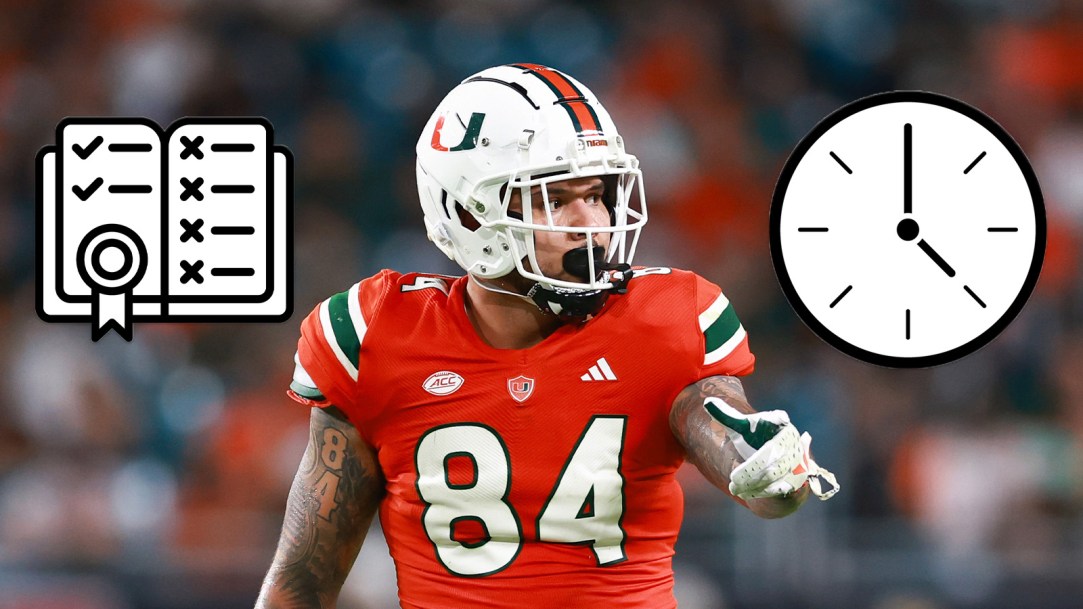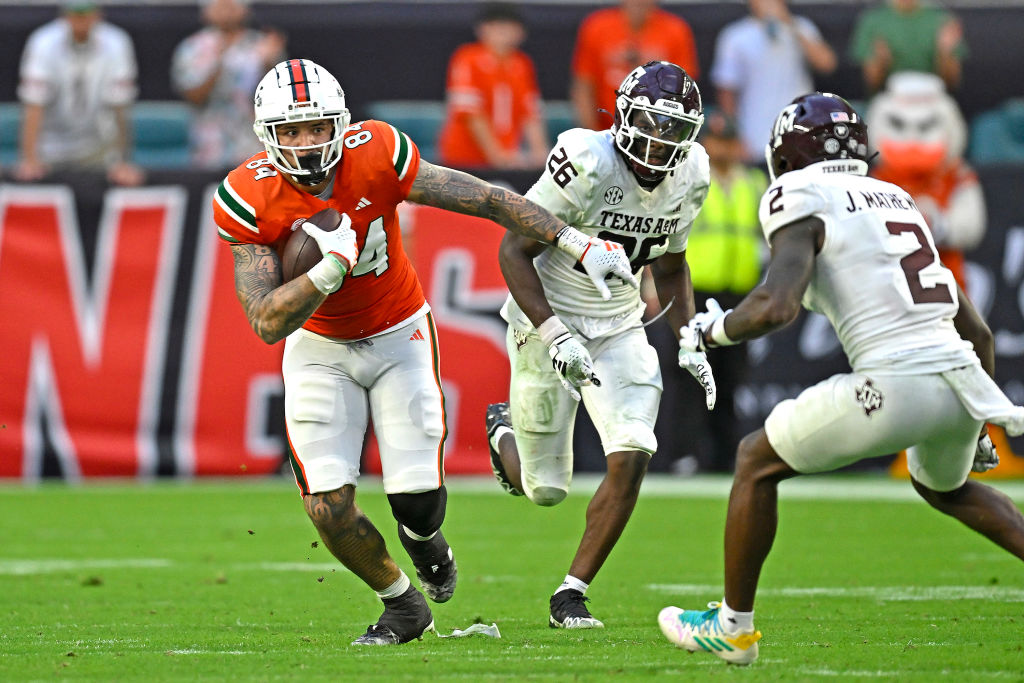
Cam McCormick could be 26 years old when his college football career comes to a close. The former Oregon Duck, who transferred to Miami during the offseason, exemplifies the need to end eligibility limits.
McCormick, a tight end, is currently 25 years old. He graduated high school in 2016.
The 6-foot-5, 260-pound tight end was a three-star prospect in the Class of 2017, and committed to play for the Ducks after growing up in Bend. His college career began when President Barack Obama had nine months left in the White House!
Earlier this week, McCormick filed an official petition with the NCAA to play a ninth season of college football. If approved, his final season would end in November, December of 2024 or January of 2025 depending on how Miami fares next fall. He will turn 27 in April of 2025.
McCormick’s resilient journey has been plagued by multiple season-ending injuries. The COVID-19 blanket waiver granted to all athletes in 2020 also allowed him to extend his career.
His future is now in the hands of the NCAA, but there is no reason to deny him a ninth season. It is time for the NCAA to eliminate eligibility rules.
College football is a professional sport.
In the current era of Name, Image and Likeness, any semblance of amateurism is out the door. College football is a professional sport where many (if not most) athletes are on the payroll of NIL Collectives.
Players are getting paid. The transfer portal creates an element of free agency, much like the NFL.
Programs with more money are able to poach breakout stars from smaller programs with bigger paychecks. Some athletes are receiving greater compensation on the collegiate level than they would as a back-end guy on an NFL roster.
Lane Kiffin spoke to the professionalization of college football at SEC Media Days.
I don’t think there’s any other sports at any level that are like this, that really, you every year, can opt into free agency. Really, twice a year […]
What if you had that in other sports? Tom Brady, A’Jai Wilson, Lionel Messi, LeBron James, what if every year those guys can opt to free agency, twice a year, really and they have no long-term contracts? Basically everybody is not even on a one-month contract because they can leave in two windows.
— Lane Kiffin
He also spoke to the financial discrepancies from program to program. Kiffin asked the room to imagine a world in which the NFL did not have salary caps or luxury taxes. That’s college football today.
When you add the NIL at the same time, we have created, I’ve said it before, we’ve got different caps and no luxury taxes. So we’ve got professional sports, because that really is what we are, what’s been created now, and there’s no caps on what guys can make or what teams’ payrolls are.
– Lane Kiffin
Roster management is the other element.
Think about it this way…
I mean, imagine in professional sports — really, I’m going to give you another window because grad transfers can still leave. They can leave in training camp.
Imagine like in professional sports, which again, we are — so as far as it is with players, that you’re coaching a player in camp and then, you know what, I don’t like the way you’re coaching me.
I graduated, so I’m going to go. I’m going to go play for another team.
— Lane Kiffin
It’s a new landscape. Things are different.
Gone are the days of amateurism.
Cam McCormick’s career exemplifies the need for change.
If college football is a professional sport, what is the purpose of eligibility limits? It has become an antiquated rule and McCormick is the perfect example.
He recorded two catches for 28 yards in the Hurricanes’ first three games of the season. He is good enough to be on the field on the college level, but his NFL stock is not particularly high.

The fact that McCormick is 25 years old does not matter.
Thus, it would be the same for other athletes his age. If they are 25 years old and not in the NFL, what is the point of keeping them off of the field on the college level?
There will be rare instances in which this scenario is applicable in the first place. However, there is no reason to stop a tight end, who might be good enough to suit up for Boston College but not for the Rams, from playing football while pursuing a law degree.
College football is a professional sport and McCormick epitomizes the reason to eliminate eligibility rules. As long as a student is actively pursuing a degree — of any kind — and a coach wants to put said student on the roster, he or she should be allowed to play!